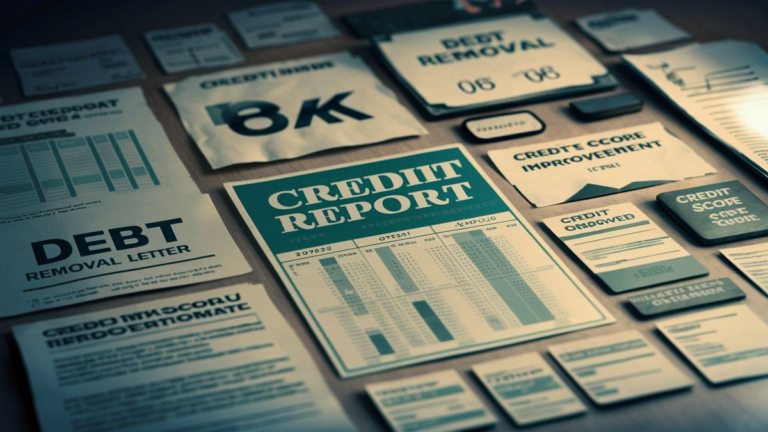If you’re looking to remove discharged debt from your credit report in the UK, it’s essential to understand the process and the steps involved. Discharged debt refers to debt that has been legally resolved through bankruptcy or insolvency proceedings. While discharged debt should no longer negatively impact your credit report, sometimes it can still linger, affecting your credit score. Here, we’ll delve into the methods you can employ to effectively remove discharged debt from your credit report in the UK.
Understanding Discharged Debt
Discharged debt is debt that has been legally cleared through a formal insolvency process, such as bankruptcy or an individual voluntary arrangement (IVA). Once debt is discharged, you are no longer legally obligated to repay it, and creditors are prohibited from pursuing further collection actions.
Check Your Credit Report
The first step in addressing discharged debt on your credit report is to obtain a copy of your credit report from one of the major credit reference agencies in the UK, such as Equifax, Experian, or TransUnion. Review your report carefully to identify any discharged debts that are still listed.
Dispute Inaccurate Information
If you find discharged debts still appearing on your credit report, you have the right to dispute this information with the credit reference agencies. Provide evidence of the discharge, such as a bankruptcy order or a letter from your insolvency practitioner, to support your dispute.
Request Removal
Once you’ve disputed the inaccurate information, the credit reference agencies will investigate your claim. If they find that the information is indeed inaccurate or outdated, they should remove it from your credit report. Be persistent and follow up to ensure that the discharged debts are removed promptly.
Seek Legal Assistance
If you encounter difficulties in getting discharged debts removed from your credit report, consider seeking legal assistance. A solicitor with experience in consumer credit law can provide guidance and support in dealing with credit reference agencies and creditors.
Monitor Your Credit Report Regularly
Even after successfully removing discharged debts from your credit report, it’s important to monitor your report regularly to ensure that it remains accurate and up to date. Set up alerts with the credit reference agencies to notify you of any changes or updates to your credit file.
Rebuild Your Credit
Once discharged debts have been removed from your credit report, focus on rebuilding your credit history. Make timely payments on any remaining debts, such as mortgages or car loans, and consider using credit responsibly to demonstrate your creditworthiness over time.
Removing discharged debt from your credit report in the UK is a crucial step towards rebuilding your financial health and securing your future creditworthiness. By understanding the process, disputing inaccurate information, and seeking legal assistance if needed, you can effectively remove discharged debts from your credit report and take control of your financial future.
Frequently Asked Questions
Here are some common questions related to removing discharged debt from your credit report:
| Question | Answer |
|---|---|
| 1. How long does it take to remove discharged debt from a credit report? | The time it takes to remove discharged debt from your credit report can vary. Typically, credit reference agencies have 28 days to respond to your dispute. However, it may take longer depending on the complexity of the case. |
| 2. Will removing discharged debt improve my credit score? | Yes, removing discharged debt from your credit report can have a positive impact on your credit score. Since discharged debt should no longer be affecting your creditworthiness, its removal can potentially increase your score. |
| 3. Can I remove discharged debt myself, or do I need legal assistance? | You can attempt to remove discharged debt yourself by disputing inaccurate information with credit reference agencies. However, if you encounter difficulties or legal complexities, seeking legal assistance from a solicitor experienced in consumer credit law may be beneficial. |
| 4. What should I do if the credit reference agencies refuse to remove discharged debt? | If credit reference agencies refuse to remove discharged debt despite providing evidence of its discharge, you may need to escalate the issue and seek further assistance. This could involve lodging a complaint with the relevant regulatory authority or seeking legal advice. |
Additional Tips for Rebuilding Credit
In addition to removing discharged debt from your credit report, consider the following tips for rebuilding your credit:
- Apply for a secured credit card and make timely payments to demonstrate responsible credit usage.
- Keep your credit utilization ratio low by not maxing out your credit cards.
- Consider becoming an authorized user on someone else’s credit card with a positive payment history.
- Regularly review your credit report for any errors or inaccuracies and address them promptly.
- Stay current on all bills and debts to show lenders that you’re financially responsible.
See also:






